Genome-wide CRISPR screens identify critical targets to enhance CAR-NK cell antitumor potency
- PMID: 40845844
- PMCID: PMC12396527
- DOI: 10.1016/j.ccell.2025.07.021
Genome-wide CRISPR screens identify critical targets to enhance CAR-NK cell antitumor potency
Abstract
Adoptive cell therapy using engineered natural killer (NK) cells is a promising approach for cancer treatment, with targeted gene editing offering the potential to further enhance their therapeutic efficacy. However, the spectrum of actionable genetic targets to overcome tumor and microenvironment-mediated immunosuppression remains largely unexplored. We performed multiple genome-wide CRISPR screens in primary human NK cells and identified critical checkpoints regulating resistance to immunosuppressive pressures. Ablation of MED12, ARIH2, and CCNC significantly improved NK cell antitumor activity against multiple treatment-refractory human cancers in vitro and in vivo. CRISPR editing augmented both innate and CAR-mediated NK cell function, associated with enhanced metabolic fitness, increased secretion of proinflammatory cytokines, and expansion of cytotoxic NK cell subsets. Through high-content genome-wide CRISPR screening in NK cells, this study reveals critical regulators of NK cell function and provides a valuable resource for engineering next-generation NK cell therapies with improved efficacy against cancer.
Keywords: CAR-NK cell therapy; adoptive cell therapy; functional perturbomics; genome-wide CRISPR screens; metabolic reprogramming; multiplexed cellular engineering; natural killer cells; precision gene editing; solid tumors; tumor microenvironment.
Copyright © 2025 The Authors. Published by Elsevier Inc. All rights reserved.
Conflict of interest statement
Declaration of interests R.B., N.U., May Daher., H.R., P.B., S.A., M.S., Paul Lin., Y.L., E.L., E.J.S., K.R., and The University of Texas MD Anderson Cancer Center have an institutional financial conflict of interest with Takeda Pharmaceuticals. R.B., S.A., E.L., E.J.S., K.R. and The University of Texas MD Anderson Cancer Center have an institutional financial conflict of interest with Affimed. K.R. participates on the Scientific Advisory Board for Avenge Bio, Virogin Biotech, Navan Technologies, Caribou Biosciences, Bit Bio Limited, Replay Holdings, oNKo Innate, The Alliance for Cancer Gene Therapy ACGT, Innate Pharma and Shinobi Therapeutics. K.R. is the scientific founder of Syena. May Daher participates on the Scientific Advisory Board of Cellsbin. E.J.S. participates on the Scientific Advisory Board for Adaptimmune Limited, Axio Research, Celaid Therapeutics, FibroBiologics, Navan Technologies, New York Blood Center, and Zelluna Immunotherapy. The remaining authors declare no competing interests.
Figures
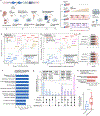
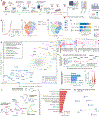

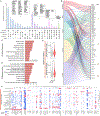
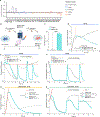

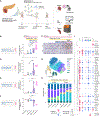
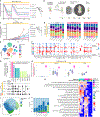
References
-
- Marin D, Li Y, Basar R, Rafei H, Daher M, Dou J, Mohanty V, Dede M, Nieto Y, Uprety N, et al. (2024). Safety, efficacy and determinants of response of allogeneic CD19-specific CAR-NK cells in CD19(+) B cell tumors: a phase 1/2 trial. Nat Med 30, 772–784. 10.1038/s41591-023-02785-8. - DOI - PMC - PubMed
-
- Liu E, Tong Y, Dotti G, Shaim H, Savoldo B, Mukherjee M, Orange J, Wan X, Lu X, Reynolds A, et al. (2018). Cord blood NK cells engineered to express IL-15 and a CD19-targeted CAR show long-term persistence and potent antitumor activity. Leukemia 32, 520–531. 10.1038/leu.2017.226. - DOI - PMC - PubMed
MeSH terms
Substances
Grants and funding
LinkOut - more resources
Full Text Sources
Medical

